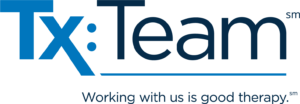Speech-Language Pathology for COVID-19 Long-Haul Symptoms
With an estimated 10 to 30% of COVID-19 survivors experiencing long-haul symptoms including brain fog and swallowing difficulties, speech-language pathologists can help in regaining their functioning and quality of life.
May is national Better Hearing and Speech Month, which is an opportunity to raise awareness about not only about communication disorders but also the treatments. One set of difficulties that people have for months after contracting COVID-19 include brain fog, difficulty eating and drinking, and speech and language problems. This can affect return to work, the ability to take care of one’s family, and overall recovery.
Many people aren’t aware of how a speech-language pathologist can help. SLPs individualize treatment based on the person’s challenges. SLPs can help with both short and long-term difficulties, including:
Cognition
Many COVID-19 “long-haulers” are reporting persistent brain fog as a debilitating symptom after their bout with the virus. This can prevent a return to work and impact their ability to tend to family responsibilities. SLPs can work with individuals to improve their memory, attention, organization and planning, problem solving, learning, and social communication—such as re-learning conversational rules or understanding the intent behind a message or behind nonverbal cues. The focus is on the person’s specific challenges as well as regaining the skills that are most important to their daily life and priorities.
Swallowing
People diagnosed with COVID-19 may experience swallowing problems that can put them at risk for choking or aspirating, which is when food goes into the lungs instead of the stomach. This may be the result of time spent on a ventilator, or it may be another side effect of the virus. SLPs use different types of tests to determine what happens when a person swallows and how the related muscles are working—helping a patient’s medical team, including the SLP, decide on the best course of action with the patient and their family. SLPs may recommend modified textures of food and drink for patients; therapy exercises to strengthen the tongue, lips, and muscles in the mouth and throat; and strategies to make eating and drinking safer, such as modifying the pace of chewing/eating, size of food, and more.
Communication
People diagnosed with COVID-19 are also experiencing speech and language difficulties. Some, such as those who spent a significant amount of time on a ventilator or experienced low oxygen to the brain, may have muscle weakness or reduced coordination in the muscles of the face, lips, tongue, and throat—making it difficult to talk. Others, particularly those who experienced a COVID-related stroke, may experience a language disorder called aphasia—which makes it hard for someone to understand, speak, read, or write. SLPs work with patients through targeted therapy to improve their communication and understanding.
If you or a loved one are experiencing any of these challenges, consider working with a speech-language pathologist to regain your quality of life!
